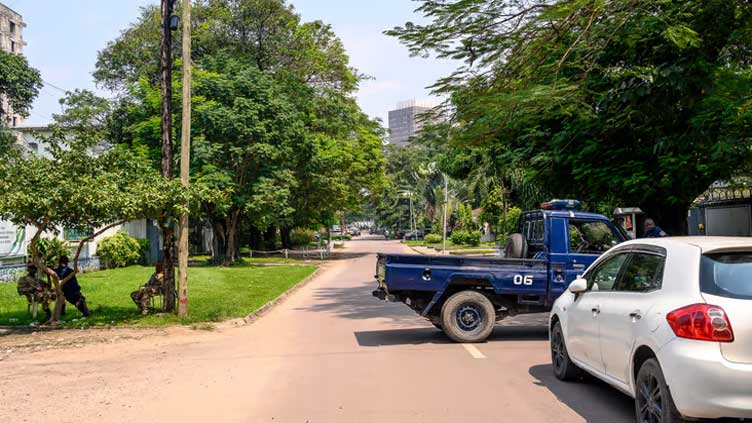DRC 'coup attempt' leaves more questions than answers

World
DRC ‘coup attempt’ leaves more questions than answers
(AFP) - A day after the army in Democratic Republic of Congo said it had thwarted an attempted coup involving several Americans and a British man, many in Kinshasa had questions about the attackers’ motives and how they were able to access key government sites.
The coup bid in Democratic Republic of Congo took place in the early hours of Sunday outside the residence of Economy Minister Vital Kamerhe in the capital’s northern Gombe area.
The group then went to the Palais de la Nation that houses President Felix Tshisekedi’s offices, brandishing flags of Zaire, the name of DRC under ex-dictator Mobutu Sese Seko, who was overthrown in 1997.
Shots were heard near the building, according to several sources.
An army spokesman later announced in a message broadcast on national TV that defence and security forces had stopped “an attempted coup d’etat”.
Kamerhe, who is a candidate for National Assembly president, and his family were unharmed but two members of their security detail were killed.
The attack “aimed to assassinate” the minister, his team said on Monday, showing reporters where the bullets had hit vehicles and his residence’s walls, and broken windows.
While daily activity resumed as normal in Gombe on Monday, many questions remained.
“It [the government] is trying to divert our attention from social and security problems,” Joel, a civil servant, told AFP.
“I don’t think that in the city centre of the capital, attackers could storm a minister’s house or the Palais de la Nation without the authorities being informed.”
Home of new PM Suminwa
The group had planned to attack the home of new Prime Minister Judith Suminwa and the residence of Defence Minister Jean-Pierre Bemba, army spokesman General Sylvain Ekenge said late on Sunday.
But they “could not identify the home” of Suminwa and had not been able to find Bemba at his residence, leading them to Kamerhe’s home and the Palais de la Nation, he added.
The ECiDe party of opposition figure Martin Fayulu pointed on Monday night to questions surrounding what they termed the “alleged attempted coup d’etat”.
People are “right to wonder what the next pretence will be”, the party said in a statement signed by secretary general Devos Kitoko.
“Politicians, stop distracting us, life is already very hard in this country,” said Maman Ndosi, a bread and avocado seller in Gombe district.
“I’m not afraid, because I’ve already seen more than this joke!” said the mother who, like many Congolese people, is very sceptical of official information.
The plot was led by Christian Malanga, a Congolese man who was a “naturalised American” and who was killed by security forces, Ekenge said.
“We also have a naturalised British subject, the number two of the group,” Ekenge said.
But in Washington, the State Department said it had no record of Malanga being a United States citizen. The State Department said it could not confirm the US citizenship of two purported Americans in custody due to privacy laws.
The US nonetheless said it would cooperate “to the fullest extent possible” in the investigation and again condemned the coup attempt.
“We are extremely concerned by the reports of involvement by US citizens,” State Department spokesman Matthew Miller said.
SADC, AU condemn attempted coup in DRC
Ekenge, the army spokesman, said the attackers were made up of “several nationalities” and that around 40 were arrested, with another four – including Malanga – killed.
Malanga’s son, Marcel Malanga, was also among the assailants. However, the exact motives of the group behind the coup bid remain unclear.
The government said it condemned the “attempted destabilisation of the institutions”.
The Southern African Development Community (SADC) and the African Union both condemned the attempted coup.
African Union Commission chief Moussa Faki Mahamat was also following events with “great concern”, the AU said in a statement.
The coup attempt comes five months after Tshisekedi was reelected with more than 70% of votes in the first round.
He became president in 2019 promising to improve living conditions in DRC – which boasts mineral riches but has a largely impoverished population – and to put an end to 25 years of bloodshed in the east.
The parties backing Tshisekedi won around 90% of seats in parliamentary elections held the same day, but he has yet to form a government.


